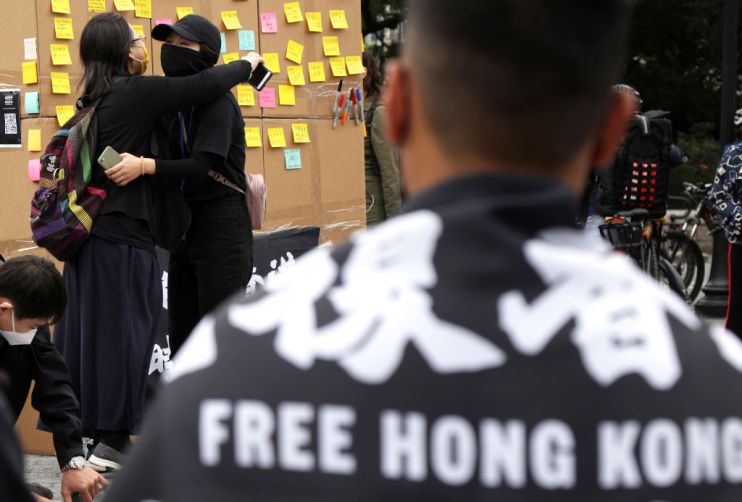Banks need to stand up for human rights abuses in Hong Kong and hit China where it hurts – their wallet

Since the introduction of the National Security Law last year, Hong Kong has seen a shift in its population. Specifically, that its citizens are leaving. Hong Kongers in their droves are taking stock of this new draconian normal and choosing to say no to further human rights abuses. More than 34,000 have fled to the UK following the British National (Overseas) visa route, with many more settling in Canada, the USA and elsewhere.
Foreign nationals are also reassessing their lives in the city. Hong Kong has long been a thriving, multicultural business hub, attracting talent from all over the world. But when faced with the prospect of living under a dangerous authoritarian regime or moving elsewhere, Hong Kong under heavier Chinese rule is coming up short.
The people of Hong Kong have made their feelings known through the strongest tools available to them – multiple protests and electing pro-democracy legislators before the Hong Kong authorities effectively banned them by moving the goalposts. Just last week, Hong Kongers purchased a huge number of copies of the Apple Daily, the pro-democracy newspaper following the authorities theatrical, 500-strong raid on its office. The editor in chief of the Apple Daily has now been arrested and the tabloid will print its last edition today.
The businesses which have thrived in Hong Kong, however, have failed to express anything at all.
The banking industry in particular has refused to acknowledge the illegal and immoral political crackdown. After two years of turmoil, breaches of international law and blatant human rights abuses, responses have ranged from turning a blind eye to active collaboration.
HSBC, for example, in April announced that it would be relocating four top executives from London to Hong Kong, a signal of the bank’s long anticipated pivot to Asia. HSBC of course has deep roots in the region, originally titled the Hong Kong and Shanghai Banking Corporation. But as a UK-headquartered bank, many were shocked when the bank released a statement in support of the National Security Law and froze the accounts of activists at the request of the Hong Kong Police Force.
While human rights abuses in the supply chain are increasingly recognised as the responsibility of all those who profit from them, the role of financiers is being ignored. There’s a long history of that of course. It is only since Black Lives Matter protests that there’s been an increasing push to acknowledge the City of London’s central role in the Atlantic Slave Trade and mass-scale deadly colonial exploitation is increasingly acknowledged, but the funding of continuing abuses has received less attention.
Environmental commitments are increasingly regarded as standard for companies, the push to divest from fossil fuel and other destructive assets is rapidly gaining force. Yet the abuse of human rights in Hong Kong have been met with silence from some of the biggest advocates of ESG.
The factors by which we measure a business’ human impact need to evolve. We must rise to the challenge of a new world where silence on human rights abuses is not enough.
Hong Kongers have withdrawn their economic and intellectual capital from the city in a human boycott. Businesses must now follow the people’s lead, and start to hold themselves and each other to a higher standard of practice.a